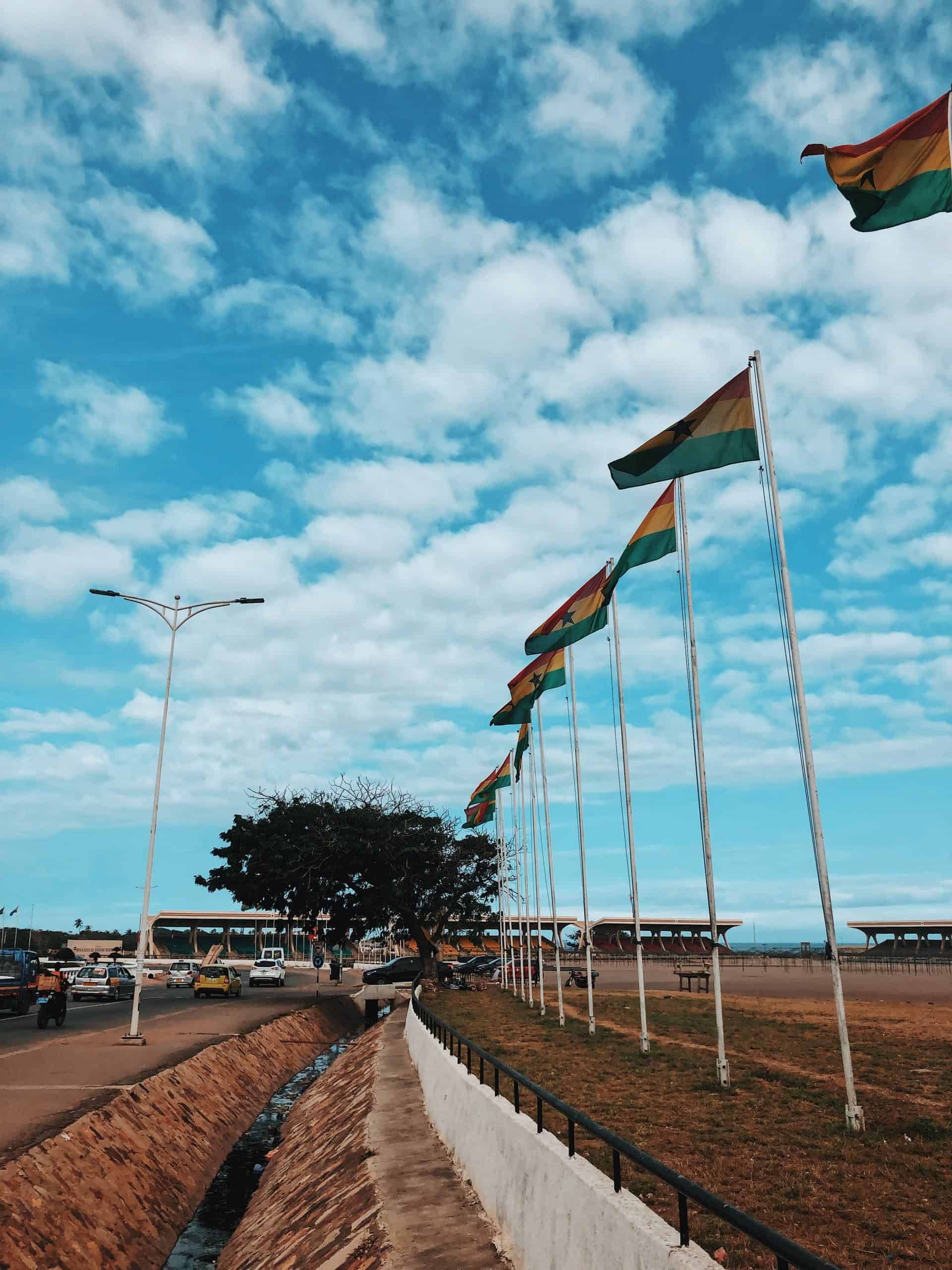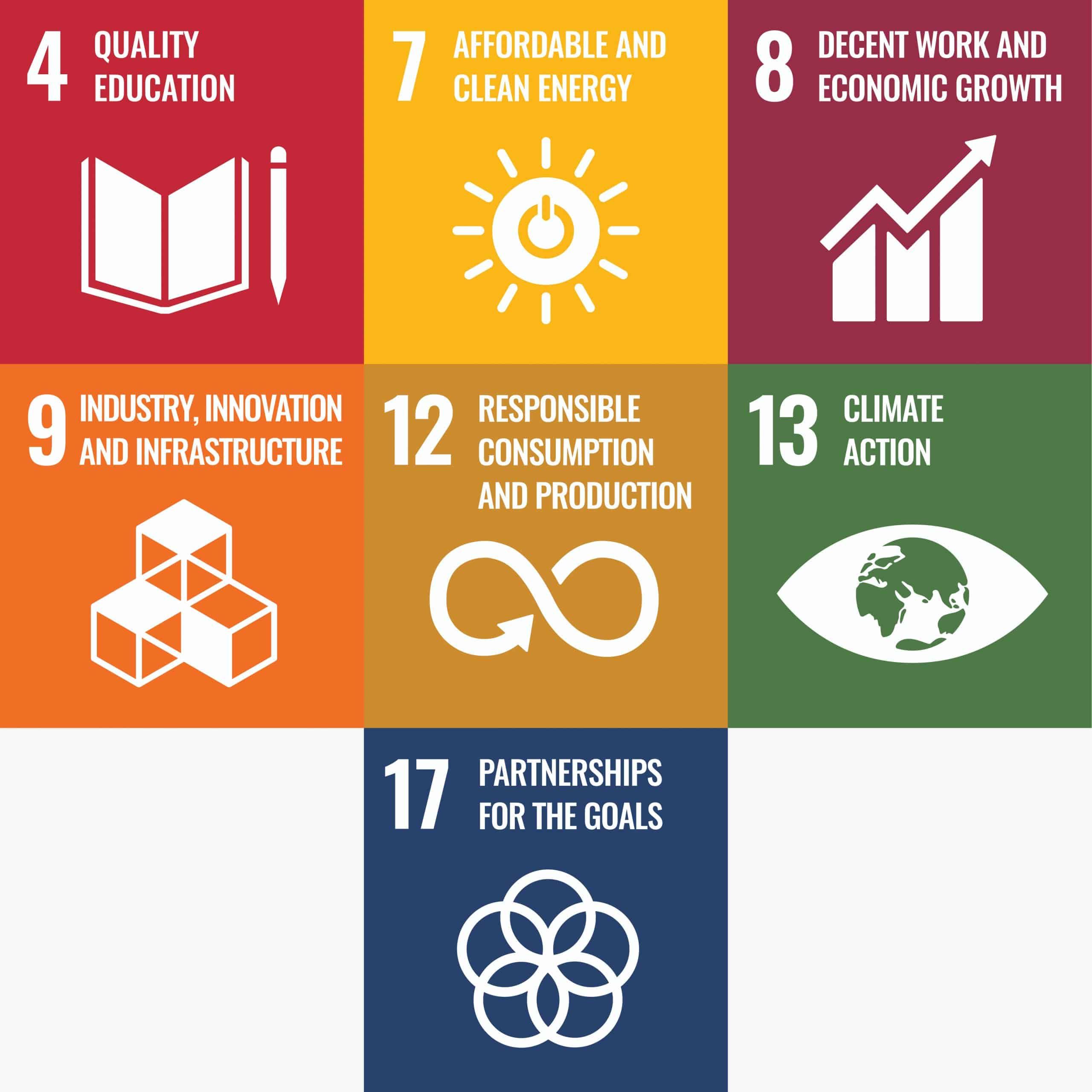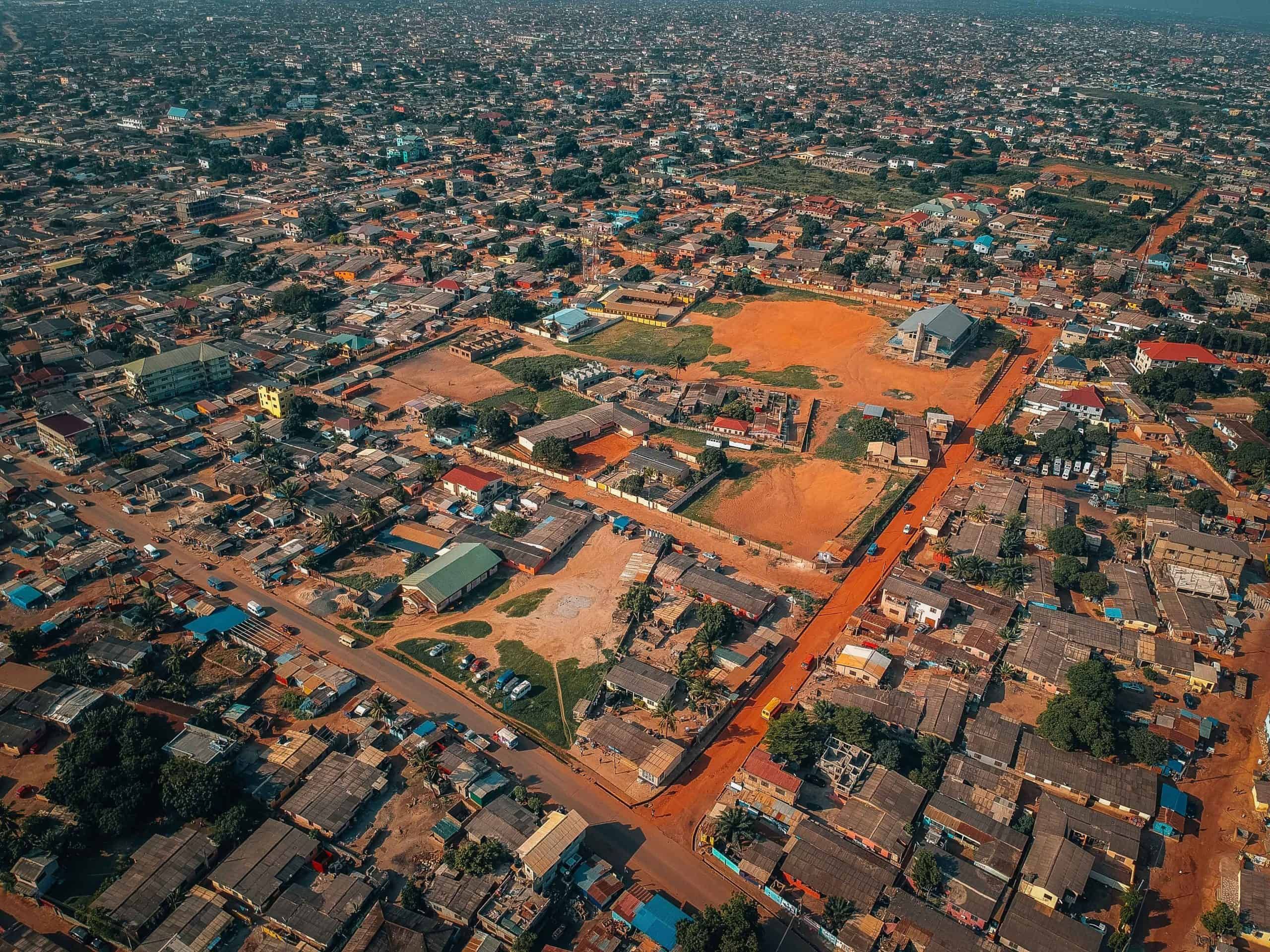Main Navigation
Ghana
Overview
For over a decade, Ghana’s national planning frameworks set a clear path towards transitioning to a green economy.
Economic growth in Ghana over the past two decades has led to reduced poverty and improved social indicators. The 2006-2009 food, fuel and financial crisis further prompted the government to transition to more sustainable growth. This was recognized in the 2010 publication “Ghana Goes for Green Growth”, together with the National Energy Policy, which included a strategy for renewable energies.
The 2013 National Climate Change Policy then envisaged a climate-compatible economy that achieves sustainable development through equitable low-carbon growth. The subsequent Ghana Shared Growth and Development Agenda II (2014-2017) and National Medium-Term Development Policy Framework (2018-2021) further refined Ghana’s vision by providing an overarching policy framework for transformative change.
Economic growth in Ghana over the past two decades has led to reduced poverty and improved social indicators. The 2006-2009 food, fuel and financial crisis further prompted the government to transition to more sustainable growth. This was recognized in the 2010 publication “Ghana Goes for Green Growth”, together with the National Energy Policy, which included a strategy for renewable energies.
The 2013 National Climate Change Policy envisaged a climate-compatible economy that achieves sustainable development through equitable low-carbon growth. The subsequent Ghana Shared Growth and Development Agenda II (2014-2017) and National Medium-Term Development Policy Framework (2018-2021) further refined Ghana’s vision by providing an overarching policy framework for transformative change.
This policy framework was the key link for PAGE engagement since 2014. In line with the existing policies and Ghana’s decentralized planning approach, PAGE focused on planning and monitoring processes of Metropolitan, Municipal and District Assemblies (MMDAs). PAGE has supported the further integration of IGE into sub-national planning processes, select sectoral and thematic policy reform processes and related capacity development across institutions and levels of government.
In 2019, PAGE began a gradual phase-out of its support from Ghana and completed the development of a sustainability plan to safeguard PAGE results and maintain the green economy agenda.
Sustainable Development
PAGE work has contributed to the mainstreaming of IGE into sub-national planning and reporting; inclusion of climate change education in basic schools across the country; initiation of thematic policy reforms across sustainable finance, green jobs and resource efficiency; as well as individual and institutional capacity-building –– ultimately, contributing to the achievement of SDGs 4 (Quality Education), 7 (Affordable and Clean Energy), 8 (Decent Work and Economic Growth), 9 (Industry, Innovation and Infrastructure), 12 (Responsible Consumption and Production), 13 (Climate Action) and 17 (Partnerships for the Goals).
COVID-19 and Green Recovery
Following the COVID-19 pandemic in 2020, the Socio-Economic Response and Recovery Plan (SERRP) of the United Nations and the Government of Ghana’s Coronavirus Alleviation Programme (PAG) provide two important policy documents to guide the government in its response and recovery planning. The SERRP focuses on two thematic areas of digitization and green economy, helping to unleash the benefits inherent in digitization for green economic opportunities. The PAG includes key support mechanisms for industry and businesses.
Corresponding to these objectives, Ghana submitted a proposal for green recovery support through PAGE in late 2020. Within this scope, PAGE will support Ghana to strengthen the enabling environment to facilitate greater public and private green finance. The work will identify opportunities to support green fiscal policies and tax and regulatory regimes that promote employment and disincentivize polluting activities as well as support new business opportunities emerging from the crisis. PAGE will also work to integrate green recovery policies into the sub-national recovery plans and facilitate capacity development for enterprises in resource efficiency and sustainable production principles under the 1 District 1 Factory (1D1F) government policy on to build back better from COVID-19.
PAGE Milestones
- 2014
Ghana joins PAGE to support Ghana’s Shared Growth and Development Agenda II and National Climate Change Policy
National Steering Committee established to oversee PAGE work
- 2015
Green Industry and Trade Assessment completed, Green Economy Assessment Study and Green Economy Stocktaking Report released providing a basis for PAGE work
Green Economy Week held to mark the completion of the inception phase
- 2016
Green Economy Action Plan finalized
- 2017
Manual for mainstreaming green economy and aligning SDGs into Metropolitan, Municipal and District Assemblies (MMDAs) development plans produced
- 2018
Medium-term development plans of sub-national MMDAs developed
New National Medium-Term Development Plan (2018-2011) – informed by development planning of MMDAs
National Dialogue on “Decent Work and Just Transition to Sustainable Economy and Society for All” held
Two media trainings held to inform journalists on climate change and green economy
Metadata for monitoring progress of MMDAs in mainstreaming climate change and green economy-related SDGs operationalized
- 2019
Final year of PAGE support commenced, with national sustainability plan developed
Training series delivered on all MMDAs to support long-term mainstreaming of green economy goals and targets into local development plans
Climate change and green economy concepts integrated into school curricula
Study on green finance finalized
National Strategy on Green Jobs in development
- 2020
National study on skills for green jobs finalized
National Strategy on Green Jobs and Action Plan drafted
Virtual training for primary school teachers on green economy and climate change
Assessment and review of previous training provided to mainstream climate change and IGE in development planning processes and data reporting requirements
Development of green finance course and pilot training concluded
Progress in 2020: A Snapshot
Mainstreaming climate change and SDGs into local and national planning
In 2020, PAGE assessed the impact of previous trainings on mainstreaming green economy in development planning at the local level, looking […]
In 2020, PAGE assessed the impact of previous trainings on mainstreaming green economy in development planning at the local level, looking specifically at trainings on SDG metadata and on mainstreaming of climate change in development plans of Metropolitan, Municipal and District Assemblies (MMDAs).
The assessment identified the capacities of the MMDAs and their relevant staff, surveying for real-time information and using focus groups to discuss potential actions to institutionalize capacity support for the MMDAs. Lessons learned will inform training models, guidance and policies on mainstreaming, monitoring and reporting on climate change and the SDGs.
Supporting green economic recovery
In 2020, responding to the impacts of COVID-19 in Ghana, PAGE specifically contributed to the development of the Ghana UN Development […]
In 2020, responding to the impacts of COVID-19 in Ghana, PAGE specifically contributed to the development of the Ghana UN Development System COVID-19 Common Country Analysis (CCA) and Socio-Economic Response and Recovery Plan (SERRP). Following this, Ghana’s Coronavirus Alleviation Programme (PAG) and PAGE Ghana developed a proposal for green economic recovery support from PAGE, as mentioned above.
The activities commencing in 2021 will strengthen the enabling environment to facilitate greater public and private green finance — identifying opportunities to support green fiscal policies and tax and regulatory regimes that promote employment and disincentivize polluting activities as well as support new business opportunities emerging from the crisis.
Growth for green jobs
PAGE, together with the ILO-Sida Partnership project, has been supporting the Ministry of Employment and Labour Relations on a National Strategy for Green Jobs. The strategy […]
Growth for green jobs
PAGE, together with the ILO-Sida Partnership project, has been supporting the Ministry of Employment and Labour Relations on a National Strategy for Green Jobs. The strategy helps to operationalize Ghana’s National Employment Policy in its references to green jobs and environmental sustainability. An initial national study on green jobs skills was conducted in 2020, identifying needs, gaps and recommendations to meet the capacity demands of a green economy in Ghana.
The strategy was developed with inputs from a range of ministries, workers’ and employers’ organizations, civil society and academia and builds on earlier work, namely, the study on Skills for Green Jobs in Ghana published in 2019. It contains four strategic objectives on policy coordination, skill development, sustainable enterprises, and sectoral approaches.
PAGE is also supporting the development of an economic model with the Environmental Protection Agency (EPA) to measure the impacts of Ghana’s NDCs on jobs and develop a set of labour market policies to complement those on climate change mitigation and adaptation. Data collection was completed in 2020, and work continues in 2021.
Enhancing resource efficiency
In 2020, PAGE conducted a resource efficiency demonstration in the palm oil sector, continuing from a similar demonstration and workshop […]
In 2020, PAGE conducted a resource efficiency demonstration in the palm oil sector, continuing from a similar demonstration and workshop for the steel sector in 2019.
Using the lessons learned from these two sectors, PAGE is assessing the best methods to assist the government in developing a national industrial efficiency policy and programme. In 2021, UNIDO will explore implementation through leveraging a regional programme also focusing on energy audits.
School curriculum
PAGE and UN CC:Learn have jointly supported Ghana Education Service (GES), together with the Ghana Environmental Protection Agency (EPA) […]
PAGE and UN CC:Learn have jointly supported Ghana Education Service (GES), together with the Ghana Environmental Protection Agency (EPA) and the Ministry of Environment, Science, Technology and Innovation (MESTI), to integrate climate change into all subjects of the new primary school curricula.
Primary school teachers were also educated on green economy and climate change concepts with training materials developed by PAGE in 2019. Between September and October 2020, 200 additional primary school teachers were trained on using the materials in classrooms, bringing the total to 800. Further work is planned in 2021 on improving awareness in schools on climate change and additionally train secondary teachers.
Tailored training on green finance
PAGE, together with the University of Ghana Business School (UGBS), began developing a course on green finance in 2019, targeting public officials […]
PAGE, together with the University of Ghana Business School (UGBS), began developing a course on green finance in 2019, targeting public officials and other stakeholders involved in financial, economic and specific policy design and implementation. The training module, syllabus and materials were finalized in 2020, with a pilot training held in December. The course will enable discussion on current green economy trends and the green finance sector in Ghana — offering a better understanding on the private sector’s role in a green economy transition; analyzing risks, returns and regulatory challenges in green investment; and unlocking green finance opportunities.




